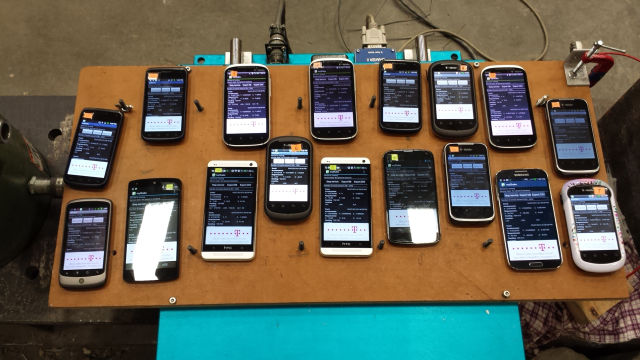Based on materials from arstechnica.com

Imagine yourself as a seismologist. In addition to having to learn about earthquakes after they happen, you need the ability to warn of upcoming ones to save lives. And this will require a sufficient number of seismometers – this is the only way to ensure that at least one of them will be close to the epicenter.
Seismometers, which have to be carefully tuned and then properly operated, are quite expensive. But everyone has in their pockets a quite useful potential seismometer – a smartphone. If you combine enough smartphones, you can have an earthquake recognition system that will work absolutely anywhere.
In the past, researchers were already interested in similar ideas, but they were forced to implement them through special devices, as well as volunteers who were contacted through their computers. But in a paper recently published in Science Advances, a group led by UC Berkeley's Qingkai Kun describes the use of Android – an app for this purpose.
At first, the scientists needed to find out what kind of error the data from the accelerometers of phones give, they launched a series of tests on devices that were stationary and in a state of shaking. Accelerometers have apparently been improved in newer phones, but scientists say the phones can at least recognize shocks with magnitude 5s within 10 km of epicenter – and beyond in the case of stronger and more dangerous earthquakes.
The developed algorithm makes it possible to distinguish between everyday shaking and tremors, minimizing the possibility of false alarms. When an earthquake strikes, the application sends information and the location of the phone to a central server. And if at least 60% of app users in a given location register tremors at the same time, one can assume a real threat and sound the alarm.
The result of the work can be the integration of the application with early warning systems that work with real seismometers, and it can also work independently in areas where there are no such systems. And with timely alerts, even one minute can play a role in allowing people to take cover or slowing trains to a stop before seismic waves arrive.
It is interesting to know the opinion of our readers – and what kind of reaction do you have with such studies? A sneer at the next 'British scientists', or maybe you yourself would be interested in trying your phone in a similar role?
